Scene from Light In the Darknes
In Not In Our Town: Light in the Darkness, we witness how students can become upstanders, even in the wake of violent hate crimes. The 60-minute documentary premiered on PBS in 2011, but is now available for purchase as a 27-minute classroom version.
This film is extremely pertinent to the educational community for several reasons. In addition to the importance of learning about how the community came together to respond to hate, it brings up serious questions for educators, for example:
How did these young people routinely participate in what they called "beaner-hopping" ("beaner" is a racial slur and "beaner-hopping" refers to beating up Latino immigrants) without their teachers and parents noticing?
Why did other students who knew what was going on never speak up?
What was the impact of the media's hateful rhetoric on the attitudes of youth in the schools?
Educators across the U.S. have begun to use the film as a springboard for addressing issues of immigration, bullying, and teaching students to be upstanders (speak up and take action).
not in our school
Are you an educator who wants to address bullying and motivate your entire community to create a safe, inclusive, and accepting school? NIOS workshops can help develop Not In our School anti-bullying campaigns, using our award-winning documentary films and lesson guides.Learn about our professional development models options, customized to your needs. Get in touch through the interest form below.
How can a NIOS workshop help my school?
NIOS workshops offer:
Schoolwide models for creating and implementing identity safe and inclusive environment on campus
Ideas for putting students in the driver’s seat to lead school-wide anti-bullying efforts
Tools for developing NIOS campaigns involving students, parents, civic leaders, and the community
Methods for teaching all students to move from bystanders to upstanders who speak up for themselves and others
Tips for supporting students who are bullied, as well as populations often targeted for their disability, race, religion, sexual orientation or perceived sexual identity

On Sunday, the citizens of Marshalltown, Iowa launched a united effort to help stop bullying before tragedy strikes.
The citywide Not In Our Town campaign is organized by an anti-bullying committee comprised of community, education, civic and law enforcement leaders. This core group of 25 were brought together by the Marshalltown Times-Republican. Through a series of film screenings, community events, and public speakers, the campaign aims to bring all forms of bullying to light to make Marshalltown a safe and inclusive city.
"We want to see if we can be ahead of the curve as a community in preventing bullying," said Mike Schlesinger, publisher of the Times-Republican, said in a June 3 article. "We want to look at ways to prevent school bullying, but also workplace bullying, domestic violence and other types of bullying among adults."
According to the Times-Republican, a youth survey showed that 41 percent of the city's students had been bullied in the last 30 days, and 11 percent of those students didn't go to school because they felt unsafe.

Here at Not In Our Town, we have been grateful for the support of our partners at American Federation of Teachers. AFT's efforts to promote the PBS broadcasts of Not In Our Town: Light in the Darkness and Class Actions and share campaign resources with its network have allowed us to connect with dynamic educators and public employees across the country.
We were also thrilled to show a segment of Not In Our Town: Light in the Darkness at AFT's annual Civil, Human and Women's Rights Conference last year in Detroit, and participate in a powerful Town Hall meeting. We are very pleased to share information about AFT's important campaign to respond to and prevent bullying: "See a Bully, Stop a Bully: Make a Difference."
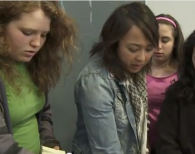
On the Day of Silence, we share with you the story of one middle school that provided the space for all of its students to have their voices heard.
"Forming a Gay Straight Alliance at a middle school requires courage—for the administrator to step up, for the teacher who serves as the advisor, and for each student who walks through that door to be a member."
By Dr. Becki Cohn-Vargas, Not In Our School Director
My daughter knew she was gay from when she was a young girl, but it wasn’t until middle school that she told me. Not all young people have someone to talk to at that sensitive age.
At Hoover Middle School in the San Francisco Unified School District, teacher Janet Miller learned frightening statistics about her district’s Lesbian, Gay, Transgender, and Questioning (LGBTQ) students at a district training. She discovered that transgender youth were the most likely students to attempt suicide. Impassioned, Janet explains that she got on a table and shouted to the staff, "It’s our job and the job of every single person in this room to enforce safety for all students, not just straight ones, so any time you are not doing it, you are not doing your job!” She convinced the staff that Hoover needed to do something about this serious issue.
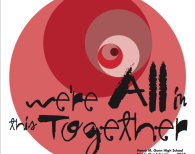
In a few hours, the end-of-day bell will ring at Gunn High School and students will gather in the school squad with a scream. After a daylong vow of silence—representing the inability of many teens to express themselves fully because of sexual orientation or gender identity—this communal scream will symbolize the "Breaking of the Silence" that is felt by LGBTQ youth and allies.
The Day of Silence activity is just one of many during Gunn's Not In Our School Week. The Palo Alto, Calif. high school has hosted a Not In Our School for nearly a decade to "promote acceptance, awareness and identity safety."
"One of the reasons why I like NIOS Week is that it reminds staff and students that it’s OK to actively participate in what’s going on around you, and that you should be supported for standing up against something that isn’t right," said Kristy Blackburn, reflecting on how she uses Not In Our School activities in her English classroom.
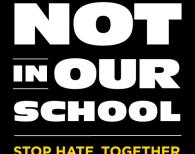
To help educators and schools get started, we have developed a Quick Start Guide: How to Launch a Not In Our School Campaign.
With a focus on students taking the lead in creating an inclusive environment at their schools, the Not In our School program can be implemented with the help of tailored lesson plans, NIOS videos, and activity guides--all available on the NIOS website. Educators can launch a Not In Our School campaign in just 9 steps.
Need funding? Apply for one of our Teacher Mini-Grants, due on April 30.
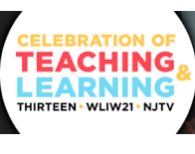
Not In Our School Director Dr. Becki Cohn-Vargas was recently featured in an article on the EdBlog, where she discusses the NIOS model for creating inclusive environments at schools and putting an end to bullying. Dr. Cohn-Vargas, along with 10,000 other educators, will be attending the 2012 Celebration of Teaching & Learning in New York City on March 16. Not In Our Town will be leading a Featured Speakers session where we will discuss the NIOT/NIOS films, as well as tools to stop bullying in your school. To learn more about the conference and to register for this inspiring education experience, click here.
Not in Our School: New Tools to Create Inclusive Environments and Stop Bullying in Your School
By Dr. Becki Cohn-Vargas
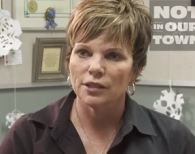
"Our students have become activists, often times they don't have to tell on anyone for bullying, they just handle it themselves, they intervene themselves. You'll walk around this campus and you'll hear kids saying, 'Hey, not in our school.' It's our theme and they live it."
—Lauri Massari, Del Sur Middle School counselor
Watch "Lauri Massari: How We Started Not In Our School"
Learn how one middle school counselor created an anti-bullying program at her school and spread it to the entire community.
This is a DVD extra from the PBS program, Not In Our Town: Class Actions. For more information on the film, visit niot.org/ClassActions.
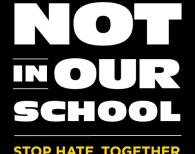
Last week, Edutopia writer Suzie Boss spoke to Not In Our Town executive producer Patrice O'Neill and Not In Our School coordinator Becki Cohn-Vargas. In her article, "Students Standing Up to Bullying and Hate," Boss writes:
